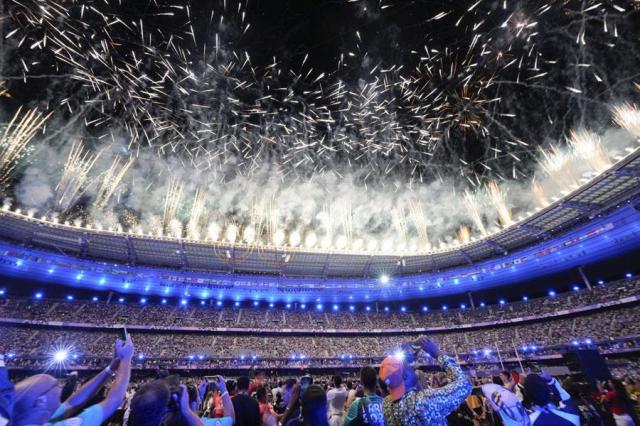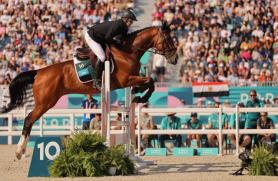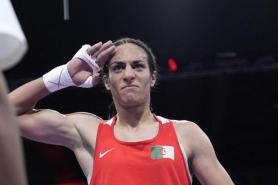
Sport organizations are no strangers to this trend. In France, a number of them are working hard to slash their events' carbon footprints. Ecotrail, for example, which organizes annual running contests in the suburbs of Paris, gifts public transport tickets to the start line to all its participants and covers the train journeys of its runners. However, the circularity of mega sport events is still a work in progress.
A leader in this field, the Paris 2024 Organizing Committee has set out to halve the greenhouse gas emissions released by the Rio 2016 or London 2012 Games, estimated at an average 3.5 million tons of CO2 equivalent (Mt CO2 eq). It is the first Olympics organization committee to have appointed a Circular Economy Officer.
But what is the circular economy in the first place? The concept can be boiled down to three key principles:
1) Using fewer resources by prioritizing existing ones 2) Making better use of these resources by promoting regenerative design 3) Relying entirely on renewable resources and eliminating the use of virgin resources
The circular economy's ten commitments
In November 2023, the Paris 2024 Organizing Committee published ten commitments on how to make the circular economy happen:
Buildings - 95 percent of temporary infrastructure for Games venues - 100-percent second life for temporary structures and infrastructure
Furniture - 100-percent second life for venue furniture - 90 percent of marketing and signage products reused or recycled
Equipment - 100 percent of contracts incorporating plans for equipment' second life - At least 60 percent of sports, technological and safety equipment leased
Catering - 50-percent less single-use plastic in the consumption phase in catering - 80 percent of consumer waste avoided or recovered during the Games
Olympics merchandise - 15 percent of licensed products manufactured in France - 15 percent of licensed products made from organic or recycled materials
Most of these commitments correspond to the first principle of prioritizing existing resources over new ones. As for the section on furniture, we can note that the committee has also already made headway with its repurposing goal. Hence in March, months before its first use as part of the Olympics, some of the 62 400 office chairs, desks and shelves, were already up for pre-sale for the period following the games. Other concrete announcements have been made to honor the commitment to ensuring a second life to infrastructure, such as the news that the new aquatic center in Seine Saint Denis would now serve school children's swimming classes.
What the Charter doesn't mention
However, the strategy fails to mention energy sources or any of the energy-related emissions necessary to make the Paris Olympic Games happen. Only little attention is paid to alternative consumption models such as rental, leasing and sharing. For example, 60 percent of the sports, technological and security equipment is leased. Local production is favored but only to a very low extent as only 15 percent of licensed products are made in France and use organic or recycled materials. This is a rather poor result with the perspective of small and local productions and consumption circuits as further feature of the circular economy.
In March 2024, Paris 2024 make a first attempt of taking stock of the impacts of the circular strategy. Thanks to the application of a responsible purchasing strategy "90 percent of six million resource elements used will be (re)deployed."
Overall, heads up to the Paris 2024 organizing committee, there is a real, serious and respectable effort to make the Olympic Games more circular, but the ball is already over to Los Angeles to make the Games truly circular.
-------------------------------------------------------------------------------------------------------------------------
Anna Gerke is an associate professor at Audencia in France.
This article was republished under a Creative Commons license with The Conversation. The views and opinions in this article are solely those of the author.
https://theconversation.com/have-the-paris-olympics-cracked-the-code-of-the-circular-economy-236037
Copyright ⓒ Aju Press All rights reserved.



